Can experiential learning really be fun?
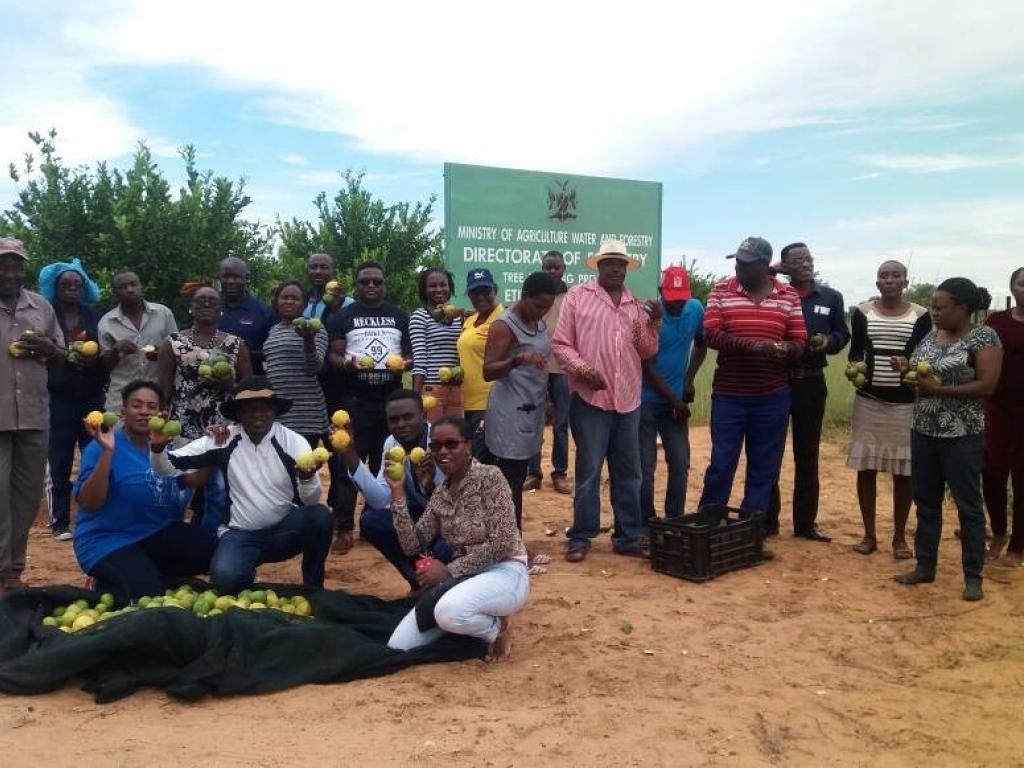
By Bernadette Shalumbu
This journey started in March 2017, when Ester Nangolo embarked on a solo journey to Onesi in Namibia's Omusati Region for a capacity needs assessment. One year later, we were back in Onesi to fulfil those identified needs. Knowing we needed to offer feedback to the community, we were in luck when the ASSAR Namibian team were awarded a sponsorship grant by START to put this into reality.
I am normally a very relaxed person but as soon as I read the email I panicked! You see, I never studied the Oshiwambo language and now I had to start translating climate change and disasters into Oshiwambo. Luckily, we got hold of Ruben Shou (from the University of Namibia) as one of the trainers and he did an excellent job! In addition, being affiliated to the National Climate Change Committee (NCCC) presented opportunities for collaboration and we were able to rope in the Ministry of Environment and Tourism, the Office of the Prime Minister and the Namibian Red Cross to be facilitators on this journey.
My experience
For me the most challenging part of this journey was how to manage coordination and facilitation of the training over a period of three months with an infant in-tow (as she just couldn't remain home). Thank you Oxfam for being so accommodating!

Shashi excited that we have upgraded to a bigger car! (Image credit: Bernadette Shalumbu)
This arrangement did not come without challenges
The small Polo Vivo which we initially hired was so cramped we had to upgrade to a bigger car. To make matters worse on the drive from Ondangwa to Outapi we had to listen to nursery rhymes during the 2-hour drive, just to ensure Shashi was relaxed. So, one can imagine what listening to Humpty Dumpty and old MacDonald on repeat can do to anyone’s sanity! On the last trip we hit a rain storm and could literally see nothing in front of us, that was such a scary situation!

Driving through the rain storm. (Image credit: Bernadette Shalumbu)
Training started on 5 February after hitting a snag with breakfast (it was only offered from 8am) which threw out schedule out a bit!
Villa Teresa
Since I had a household in-tow I could not qualify to stay at the bed and breakfast and thus had to look for our own self-catering alternatives. Well, there was only one option available in Outapi and I was excited to read that it was called a “villa”! Oh well, adverts certainly created a lovely impression of what to expect, sadly my dreams were shattered when I arrived. At least they had running water and electricity and rabbits to entertain my child whilst I was away, so I was content.
Experiential learning: Let the games begin!
The fun began with a telephone game which was aimed at informing the participants at just how easy information can be misinterpreted and breed all sorts of confusion. The message was: “Onesi is expecting drought this year. Drought resistant seeds will be available at the Ministry of Agriculture office and all headman’s houses for N$ 20.00”. The message was then sent through the circle from one person to the next. When everyone had received the message the first and last person read it out. The first person repeated the correct message but the last person got a completely different and misinterpreted message saying, “all animals in Onesi died because of drought”. Oh boy…
Next we tried our hand at getting the participants to act in a role they would normally never consider. It was fun seeing everyone playing someone else, especially if that person was also in the audience. Too bad my phone ran out of recording space!
During the disaster risk management board game we could easily pinpoint who the strategic manipulators and plotters were, but I cannot blame them for being cunning as I would also do anything to get out of a disaster! Who knew what wonders a board game and same dice could do…
The gender walk made a lot of people laugh as the cards they were dealt were “gender inappropriate” and at times participants were not sure of their next move, literally! But in the end, it was the village chief and the wife of the headmaster who made it ahead of the pack with a few unfortunates, such as a single mother with four children left behind wondering “why am I not moving?”
The farming juggle brought out the kid in everyone. Ester even had to lay down some ground rules as some of the participants were already geared up and ready to aim at their targets: good opportunity to get rid of those hidden grudges, perhaps?
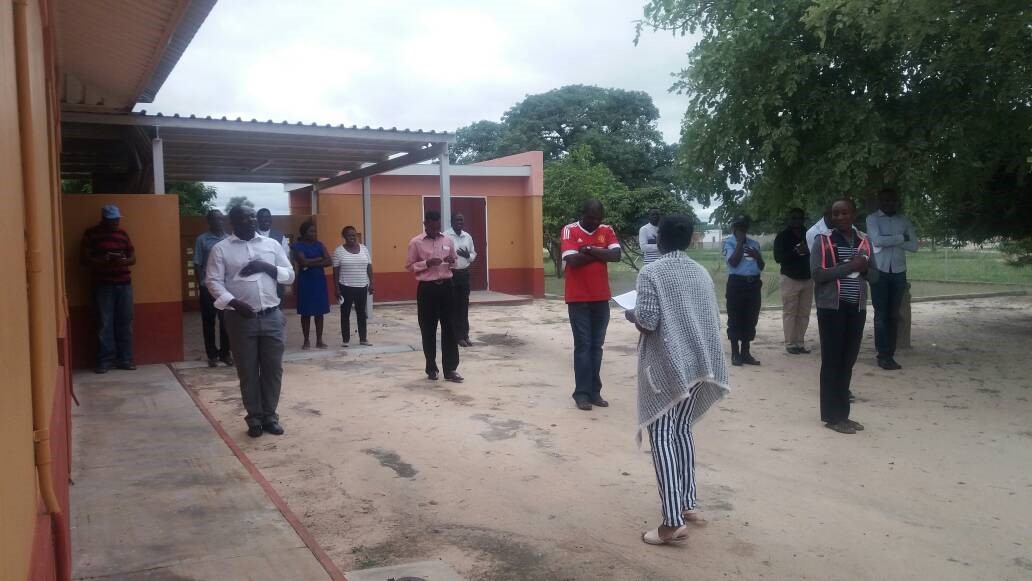
Gender walk in action. (Image credit: Ester Nangolo)
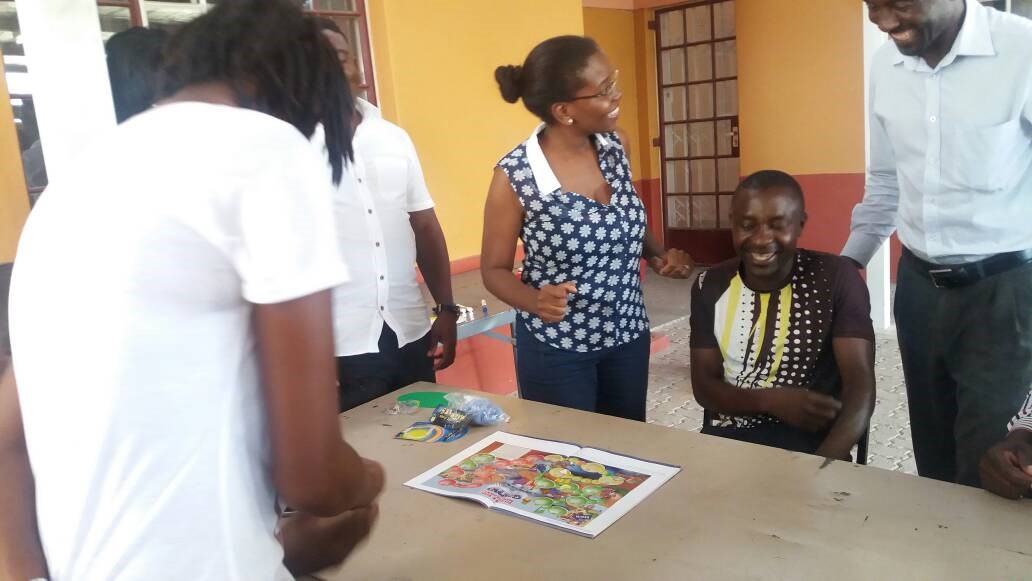
This board game is awesome! (Image credit: Ester Nangolo)
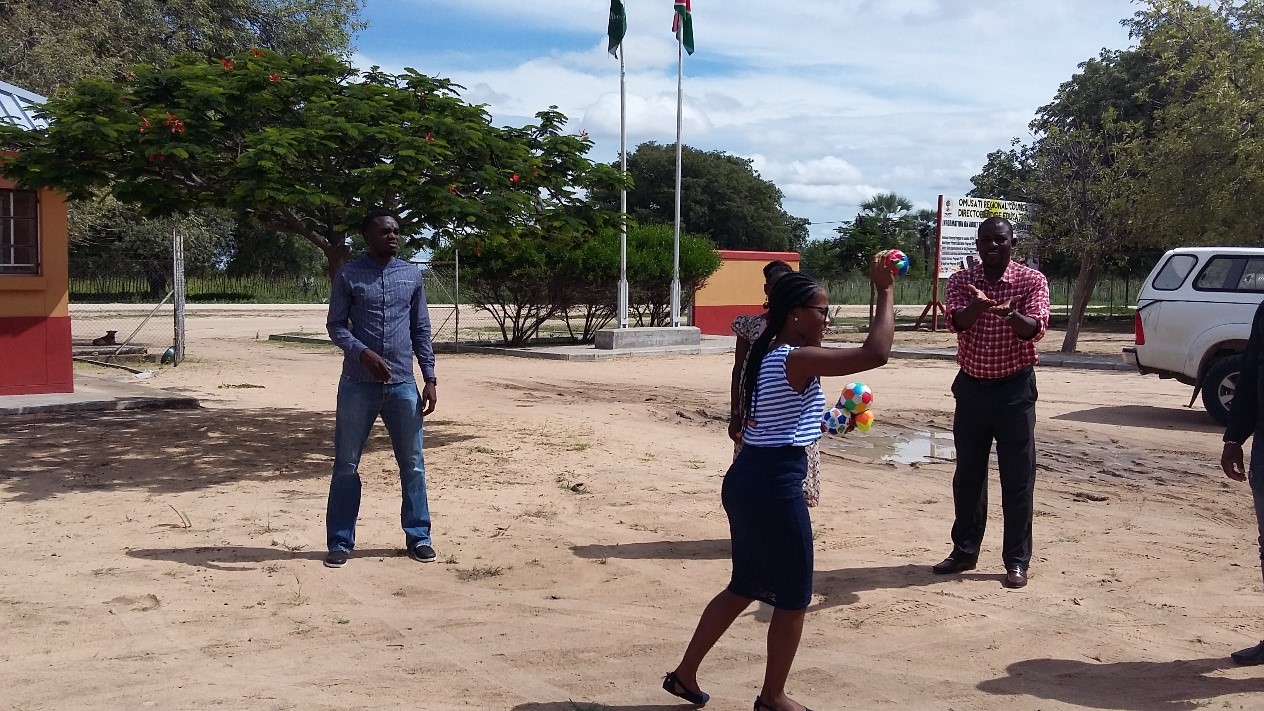
Please be careful with these balls! (Image credit: Bernadette Shalumbu)
The site visits
We officially concluded our learning journey by travelling on a very big bus that UNAM provided (it seated 60 but there were only 25 of us!)
The visit to the Etunda Irrigation Scheme and the rice project at Ogongo were to show practical solutions to some of the ways that the agricultural sector is adapting to climate change.

Rice Project at UNAM Ogongo Campus. (Image credit: Bernadette Shalumbu)
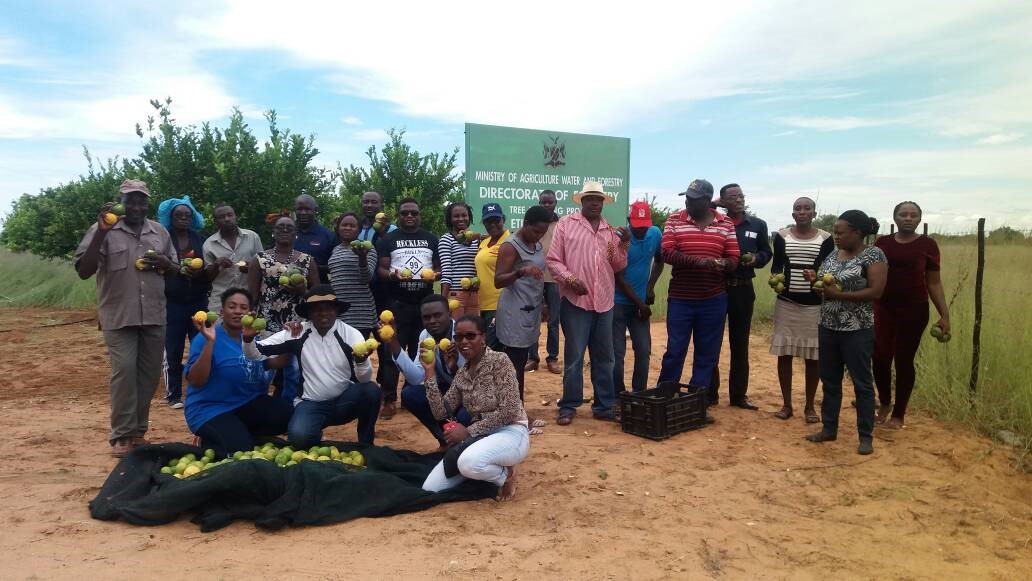
The Agriculture Ministry Orchard Project at Etunda. (Image credit: Ester Nangolo)
So after three long months, I can proudly say that we accomplished what we aimed to do and with a final handshake, we say goodbye to this journey and YES I do now know what climate change and disaster is in Oshiwambo; just don’t test me on that!